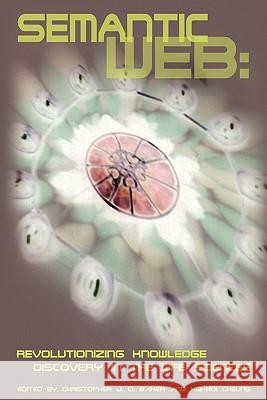Semantic Web: Revolutionizing Knowledge Discovery in the Life Sciences » książka
Semantic Web: Revolutionizing Knowledge Discovery in the Life Sciences
ISBN-13: 9781441943033 / Angielski / Miękka / 2010 / 446 str.
The rapid growth of the Web has led to the proliferation of information sources and content accessible via the Internet. While improvements in hardware capabilities continue to help the speed and the flow of information across networked computers, there remains a major problem for the human user to keep up with the rapid expansion of the Web information space. Although there is plenty of room for computers to help humans to discover, navigate, and integrate information in this vast information space, the way the information is currently represented and structured through the Web is not easily readable to computers. To address this issue, the Semantic Web has emerged. It envisions a new information infrastructure that enables computers to better address the information needs of human users. To realize the Semantic Web vision, a number of standard technologies have been developed. These include the Uniform Resource Identifiers (URI) for identifying objects in the Web space as well as Resource Description Framework (RDF) and Web Ontology Language (OWL) for encoding knowledge in the form of standard machine-readable ontologies. The goal is to migrate from the syntactic Web of documents to the semantic Web of ontologies. The leading organization for facilitating, developing, and promoting these Web-based standards is the World Wide Web Consortium (W3C) (http: //www. w3. org)











